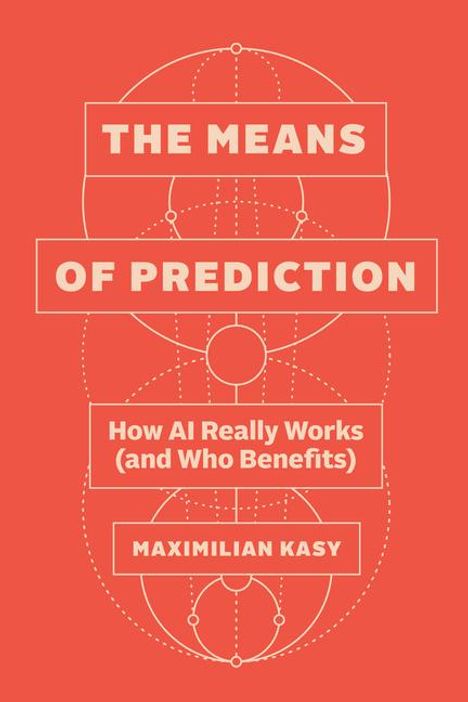Maximilian Kasy: The Means of Prediction, Gebunden
The Means of Prediction
- How AI Really Works (and Who Benefits)
- Verlag:
- University of Chicago Pr., 10/2025
- Einband:
- Gebunden
- Sprache:
- Englisch
- ISBN-13:
- 9780226839530
- Artikelnummer:
- 12211143
- Umfang:
- 224 Seiten
- Gewicht:
- 454 g
- Maße:
- 218 x 137 mm
- Stärke:
- 22 mm
- Erscheinungstermin:
- 24.10.2025
- Hinweis
-
Achtung: Artikel ist nicht in deutscher Sprache!
Klappentext
"An eye-opening examination of how power-not technology-will define life with AI. AI is inescapable, from its mundane uses online to its increasingly consequential decision-making in courtrooms, employment interviews, and wars. The ubiquity of AI is so great that it's even produced public resignation-a sense that the technology is our shared fate. As economist Maximilian Kasy shows in The Means of Prediction, artificial intelligence, far from being an unstoppable force, is irrevocably shaped by human decisions-choices made to date by the ownership class steering its development and deployment. Kasy shows that the technology of AI is not complex. It is insidious, however, in its capacity to steer results to its owners' wants and ends. Kasy clearly and accessibly explains the fundamental principles on which AI works, and in doing so, reveals that the real conflict isn't between humans and machines, but between those who control the machines and the rest of us. The Means of Prediction offers a powerful vision of the future of AI: a future not shaped by technology, but by the technology's owners. Amid a deluge of debates about technical details, new possibilities, and social problems, Kasy cuts to the core issue: who controls AI's objectives, and how is this control maintained? The answer lies in what he calls "the means of prediction," or the essential resources required for building AI systems: data, computing power, expertise, and energy. As Kasy shows, in a world already defined by inequality, one of humanity's most consequential technologies in centuries has been and will be steered by those already in power. Against those stakes, Kasy offers an elegant framework both for understanding AI's capabilities and for designing its public control. He makes a compelling case for democratic control over AI objectives as the answer to mounting concerns about AI's risks and harms. The Means of Prediction is a revelation, both an expert undressing of a technology that has masqueraded as more complicated and a compelling call for public oversight of this transformative technology"--

